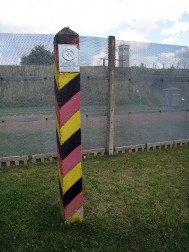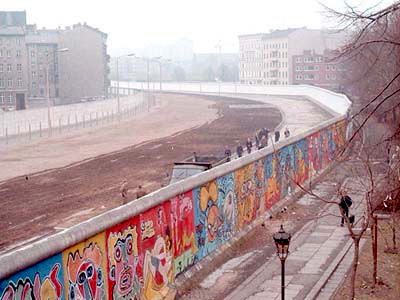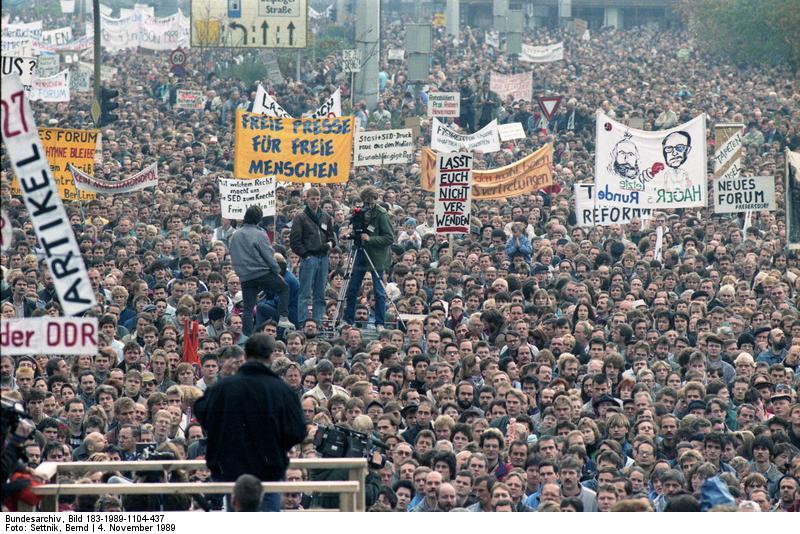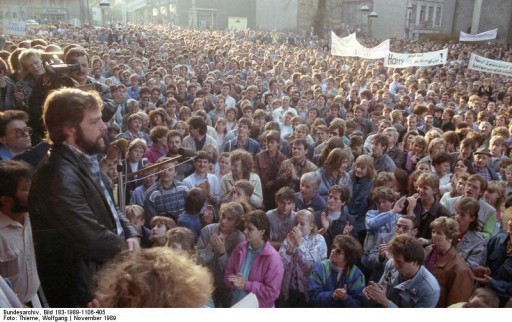
November 9th will see the 20th anniversary of the fall of the Berlin Wall. Last week I spoke with Jonathan Zatlin, a BU associate professor, about how The Wall fell and what it means today. Professor Zatlin said that while the anniversary has seen attention in academic circles, it has not seen much attention in the United States. He also believes ( and I am inclined to agree) that the fall of communism is “the most important historical event since 1945.” In order to understand The Wall’s importance, we first must understand what it was like in 1989.
Europe’s borders in 1989 were very different from the Schengen-free movement zone that exists today. While travel amongst western European states was open, travel to and, more importantly, from the east was restricted. To enforce these regulations, Eastern Bloc states built massive border fortification systems that they claimed were necessary to keep out the “fascist” west. The primary objective of these fortifications was to keep Eastern Bloc citizens from defecting to the west. The Berlin Wall is the most famous of these border fortifications.
Early 1989 saw a tremendous amount of change in the Eastern Bloc countries. In April, the Polish solidarity Movement won all the seats allotted to it during the first “free” elections. According to Professor Zatlin, the free elections in Poland are a result of the dire economic situation there and the necessity to bring the opposition into government in order to pass unpopular measures to deal with Poland’s debt to the west. The next crack formed in Hungary, in particular its border with Austria. The Hungarian Government had been working with the West for several years and joined the IMF. In exchange for loans from the west, in particular West Germany, Hungary began to dismantle its border-fence with Austria allowing East Germans to escape via Austria into West Germany. The East German government attempted to “sell the wall” but completely botched it, Professor Zatlin said, leading to the events in later in the fall of 1989.

October saw the removal of Erich Honecker, the leader of the GDR since the early 70’s and a communist hardliner. Large protests began in October and Honecker attempted to use military force and the secret police but was unsuccessful when protesters refused to be come violent. The protests continued to grow reaching 1 million people by November 4th. The GDR was brought to a complete standstill.
The pressure on the East German government was enormous. During a November 9th press confrence, GDR Politburo member Günter Schabowski announced that East Germans would be allowed to travel without restrictions to the west. When a reporter asked about the timing of the implementation of new policies, Schabowski was non-committal but indicated that the relaxed regulations would take effect immediately. Hearing this news, East Berliners flocked to The Wall by the thousands, demanding to be allowed through the border. Border Guards had not been informed, as the changes were supposed to be effective soon but not immediately, and initially resisted the rush but soon became overwhelmed and began stamping passports without hesitation. The Wall was no more.
The end of The Wall meant the end of Communism and the beginning of the world that we know today. But why is it important? As the conservative voice here at The Quad, you may be expecting me to say something like the following: ” The fall of communism is important because it showed that Ronald Reagan scared the Soviets into submission because they knew that once we got ‘Star Wars’ operational, they were toast.” Communism fell because it is flawed, because people desire to be free and to choose the society in which they live. West Germans led far more prosperous lives than their East German counterparts and East Germans could see this on television every day. East Germans were beaten and killed for thinking about alternatives to the communist regime while they could hear and see free elections and the open exchange of ideas just across the wall. This anniversary is important because it shows how much better the free world is compared to the ideological regimes despite all of our flaws. In dealing with the ideological regimes that still define today’s world, it is important to remember that the Berlin Wall fell because the people who lived behind it decided that that the western way of life was better than oppression and sought to change their society. History repeats itself, and if it can happen in Eastern Europe it can happen in the other oppressed nations around the world.
Images not otherwise credited come from the Budesarchiv’s Digital Photo Collection


